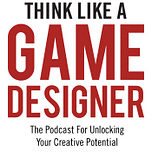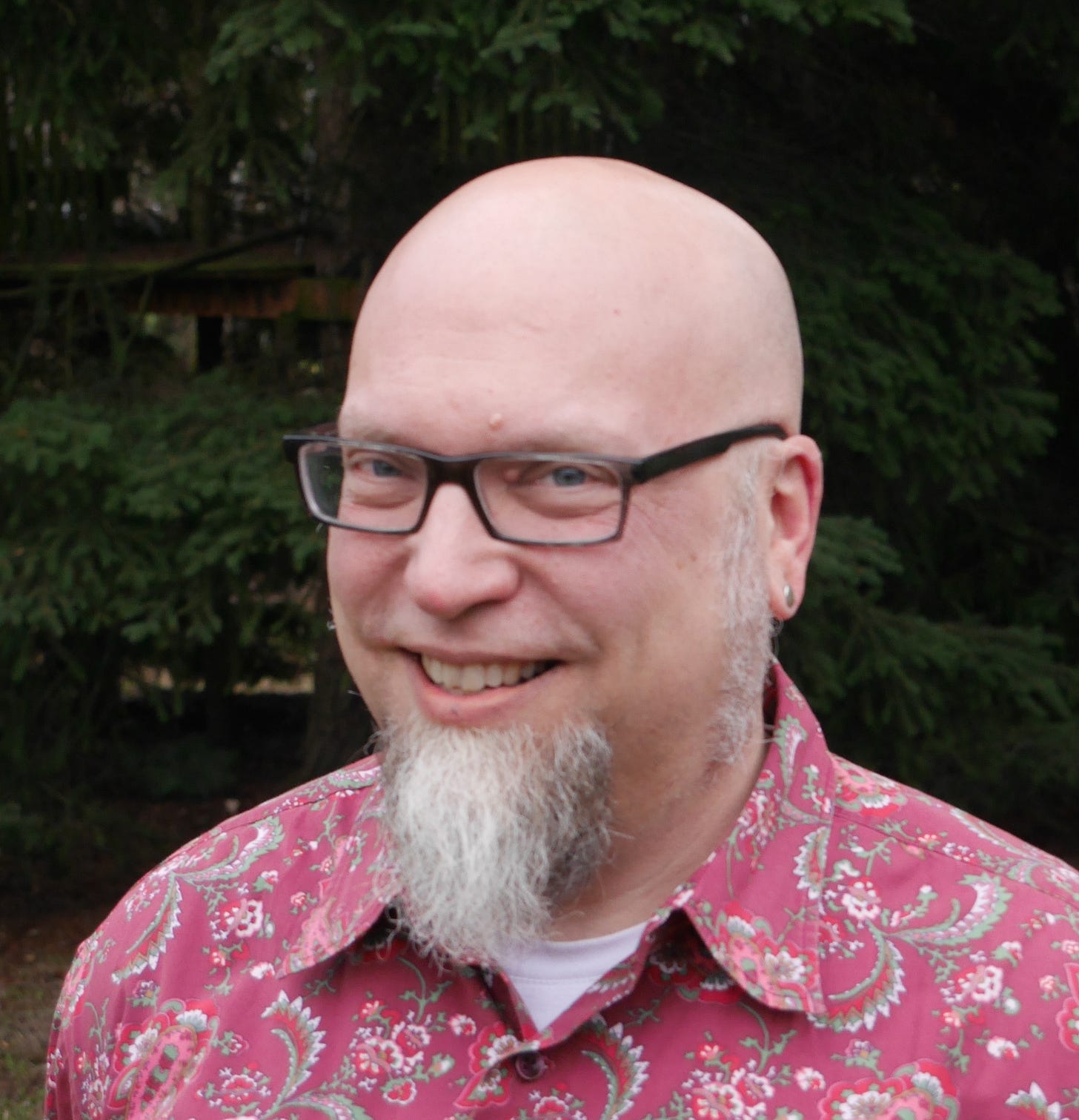About Jonathan Tweet
Jonathan Tweet joins us today to share his 25-year journey through the gaming industry. His impressive portfolio includes titles such as Ars Magica, Over the Edge, Everway, and Dungeons & Dragons 3rd Edition. In addition to his work in game design, Jonathan is also a successful children's book author. His book Grandmother Fish is the first designed to teach evolution to preschoolers, blending his game design expertise with educational storytelling. In this episode, Jonathan takes us through his beginnings, from self-publishing Ars Magica in 1987 to freelancing for games like RuneQuest and Call of Cthulhu. He provides insights into the development of Dungeons & Dragons 3rd Edition, explaining the open gaming license and its impact on the RPG industry. Jonathan also shares a personal story about a live event game he designed that significantly influenced my life. I can’t wait for you to dig into this episode—Enjoy!
Want to support the podcast and get more design lessons?
Paying subscribers enjoy an abundance of extra game design content and an exclusive newsletter with new lessons, archive access, videos, and more! By opting for a free or paid subscription, you can get the latest articles delivered to your inbox and support this podcast!
Ah-ha! Justin’s Takeaways
Mental and Creative Recharge: During this episode, I discuss the importance of disconnecting to recharge mentally and creatively. Each year at Burning Man, I experience a sense of renewal by stepping away from the digital world and immersing myself in a different environment, surrounded by creative energy and complete immersion in the moment. This break allows me to return to work with fresh perspectives and renewed energy.
Finding the Right Balance: Adding to this experience is balancing being constantly connected to work and taking intentional breaks to disconnect. I work as a digital nomad from anywhere in the world, thanks to being constantly connected. On the flip side, this always-connected status means I work all the time, and I think about working a lot of the time, but I’m not technically “working.” Contrary to popular opinion, I think this is perfectly fine and healthy. Being deeply immersed in my work lets me iterate quickly and keeps all the context of my active projects in mind to increase the likelihood of breakthroughs. However, staying always on all the time leads to burnout and decreased quality of work. My recipe for solving this is to cycle periods of intense work with periods of complete disconnection. By integrating periods of disconnection into our routines, we can harness the benefits of connectivity without getting burnt out.
Creating Boundaries: Creative work also requires shutting out distractions. Setting boundaries for how you can be reached helps protect your critical focus time. This might involve designated times for checking emails, social media, or other digital activities. In a previous newsletter, I discussed my favorite productivity tools; you can read that for free below.
Show Notes
"It's really important for people who want to be game designers to start designing games before they go pro." (00:04:10)
Jonathan discusses the importance of hands-on experience in game design. He shares his journey from creating games as a teenager to self-publishing Ars Magica with his friend Mark Rein-Hagen. A key here is the value of early practice and experimentation in developing game design skills.
"We wanted to reach people that Dungeons & Dragons didn't reach." (00:21:00)
Jonathan discusses the creation of Everway and its aim to appeal to a broader audience than traditional role-playing games. He explains how using art cards for character creation was intended to make the game accessible and engaging for non-gamers. This lesson emphasizes the importance of both innovation and inclusivity in game design. It also echos a lesson from a previous episode with game designer Monte Cook: as an RPG designer, you’re tasked with figuring out how to get people to set aside D&D to learn your game.
"I really love that regular people get the opportunity to be creative, to do something new with their friends that no one's done before, and it expresses a little bit of themselves." (00:23:46)
Jonathan shares his passion for role-playing games and their ability to encourage creativity and personal expression. He talks about his efforts to make role-playing games more accessible and enjoyable for everyone. This discussion highlights the role of creativity and community in the gaming experience.
"One year later, we had all these people who were trying to get you to play more Dungeons & Dragons but with their adventure, their gear book, or their monster manual." (00:43:01)
Jonathan explains the rationale behind the open gaming license (OLG) for Dungeons & Dragons 3rd Edition. He recounts how the license transformed competitors into collaborators, enhancing the game's visibility and popularity. This lesson demonstrates the power of fostering a large, active player community, a lesson we’ve seen repeatedly through this podcast.
"The management was bad. The relations within the teams were bad. Strategy was bad." (00:52:41)
Jonathan reflects on his time working at Amazon Game Studios and discusses his challenges in a difficult environment. He explains how poor management and strategy led to difficulties developing successful games. This segment provides insights into the complexities of working in a large corporate game development setting and the importance of strong leadership and clear vision.

















Share this post